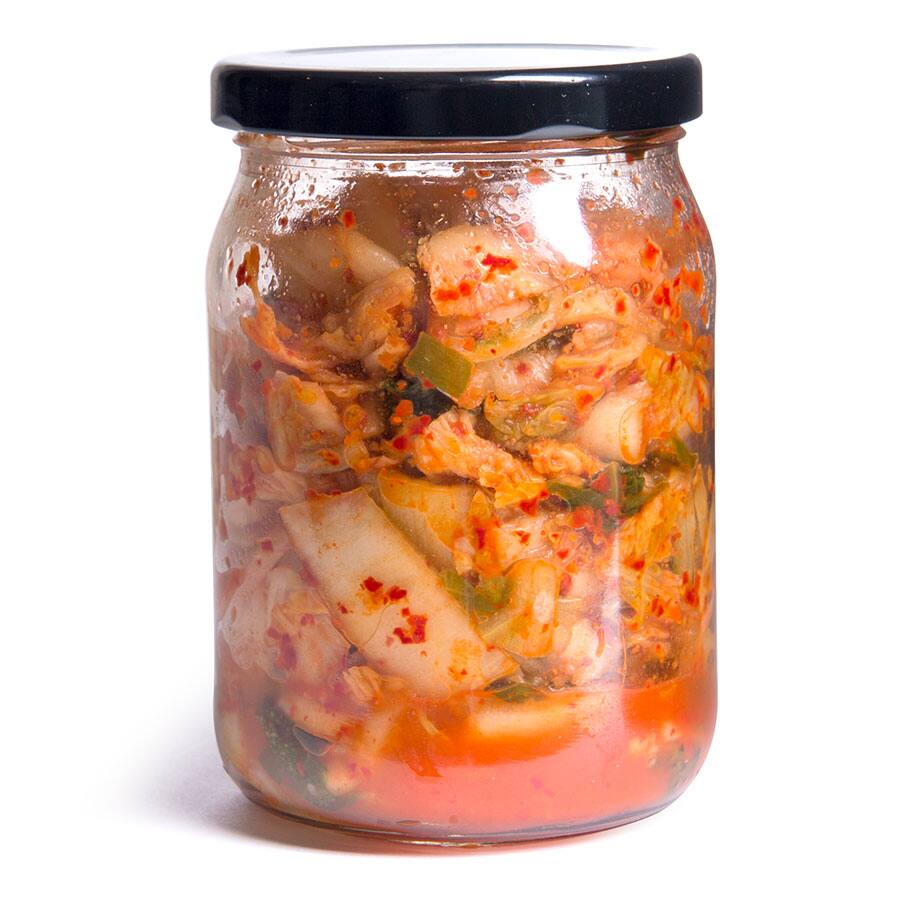Nutrition
The health benefits (and detriments) of the way you prep your food

Dreamstime
Nutrition
The health benefits (and detriments) of the way you prep your food
Eating healthy isn't just about what you cook—how you prepare your food matters, too.
The way you cook your food can impact its nutritional value and can even lead to the development of carcinogenic compounds. Here's what you need to know about eating raw foods, stir-frying, grilling, steaming, fermenting and slow cooking.
1. Raw

iStockphoto
Nutrition notes
Some vitamins degrade when heated, so eating uncooked veggies can offer some benefits. But don't take that as a sign to switch to an all-raw diet. Amanda Li, a Toronto registered dietitian and chef, explains that cooking breaks down cell walls, making it easier for your body to absorb the minerals and antioxidants inside.
Give it a boost
Don't cut up your veg until you're ready to eat, says Li, because slicing speeds up vitamin degradation. And be sure to use a sharp knife, as dull blades cause cell damage, which means even more nutrient loss.
2. Stir-frying

iStockphoto
Nutrition notes
You can fry both veggies and meat at higher temperatures with only a little oil. Since this method is quick, most nutrients remain intact.
Give it a boost
Always add oil after the skillet is hot. When oil heats up with the pan, it can easily overheat—and that causes oxidation, "which can lead to the formation of carcinogenic compounds," says Li. Make sure you choose an oil with a high smoke point; Andrea Donsky, a registered holistic nutritionist, suggests avocado oil, which can be heated to 520°F.
3. Grilling

Dreamstime
Nutrition notes
Grilling imparts great flavour that can eliminate the need for additional seasoning (which can be a source of extra salt), but it's also associated with two types of carcinogens: one from the charring of meat, and the other from the smoke caused by juices dripping onto coals below.
Give it a boost
Research has shown that herb-filled marinades are your best defence, because the herbs' antioxidants counteract carcinogens. Donsky recommends keeping the grill clean, using a drip pan to prevent flare-ups and smoke, and discarding any burned sections of meat.
4. Steaming

Shutterstock
Nutrition notes
This cooking method is fast and doesn't put veggies in direct contact with liquid, so most of the vitamins stay put.
Give it a boost
Remove vegetables from the heat when they're bright and still slightly crisp. If they sit in the steamer, they'll continue to cook and lose nutrients, says Li.
5. Fermenting

Photography by Genia Shapira
Nutrition notes
There are several types of fermentation, but lacto-fermentation, which uses brine and a food's natural bacteria to break down its sugars, is what gets you kimchi and sauerkraut. The bacteria that thrive in these dishes have earned superfood status for their digestion-promoting probiotics, but the fermenting process can also involve a lot of salt, says Li.
Give it a boost
Be careful to follow reputable recipes, and ensure that the brine covers the vegetables completely, otherwise they could grow mould. And it's best to enjoy in moderation if you're watching your sodium intake.
6. Slow cooking

Nutrition notes
The prolonged heat involved in slow cooking does lead to increased vitamin loss, but since the juices are retained, these dishes are full of natural flavour. That means you're less likely to need added salt or sauces.
Give it a boost
When cooking meat in the slow cooker, Li suggest letting the dish cool completely in the fridge, then scraping off the fat that solidifies on top.














Comments